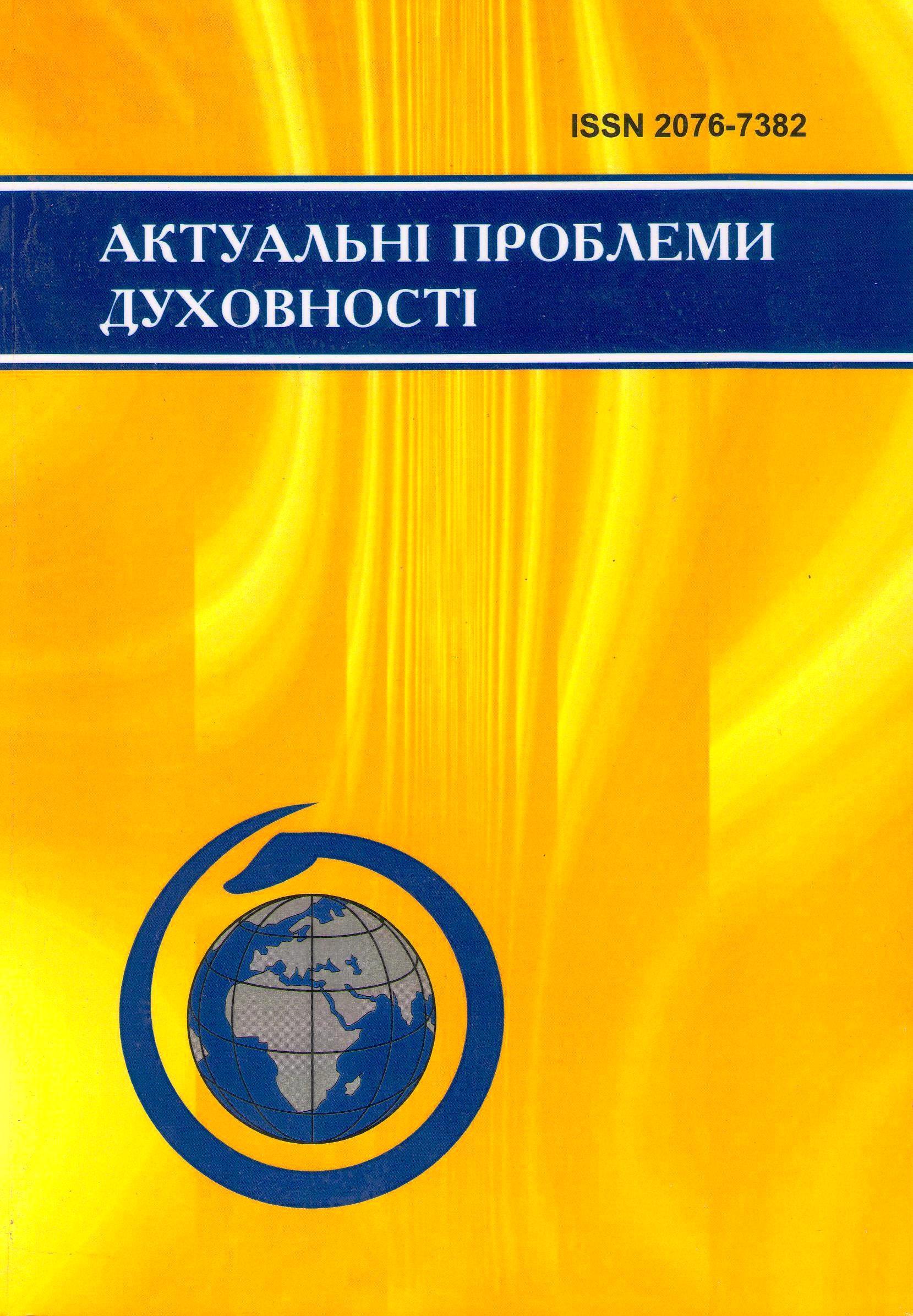On the problem of identity: the "fourth element" of J. Fowles
DOI:
https://doi.org/10.31812/apd.v0i22.4530Keywords:
identity, pseudo-identity, ego, nemo, narcissism, conformism, freedomAbstract
The article attempts to analyze the structural model of identity on the material of the philosophical essays of the modern British thinker and philosopher J. Fowles, who reconsiders the traditional Freudian concept of mind and includes a new construct in it — the category of Nemo. Nemo is interpreted as the anti-ego, under the influence of which a pseudo-identity is formed, and that is a form of psychological protection: the escape from freedom. Freedom as an existential dimension of identity is analyzed in the context of the category of nothingness. The disadvantage of Freud’s concept is its simplicity, as it lacks an existential basis. It also reviews the history of the issue, different options for defining identity, modern philosophical trends, including the methodology of phenomenological and existential paradigms used in the study. Freud considers the ego as a kind of core around which the personality is formed (its identity); “I” provides continuity and consistency of individual behavior based on his biological and psychological experience. Freud interpreted the concept of “I” functionally: as its basic function is thought the function of protection, its various forms, and manifestations. The “I” can also be a concentration of anxiety due to external challenges, pressure from the unconscious, and fear of conscience. The psychoanalytic model of identity is ambivalent, interpreted as an infantile ego — the result of internal conflict: the influence of libido and the system of prohibitions of the Over-Self. At the same time, the ability to productively resolve internal conflicts is different. Nemo’s resistance produces demonstrative aspects of personality — the narcissistic ego. Narcissism, conformism — a pathological solution to the conflict — in psychoanalysis is close to the concept of “escape from Nemo” in the philosophy of J. Fowles. Where it was, the “I” must appear, a psychoanalytic maxim that directs the analyst’s efforts in the direction of constituting a healthy identity that is not weakened by internal conflicts. A psychoanalytic interpretation of ego is opposed by existential interpretation, based on the transcendental preconditions of identity, understanding of its complex dynamic nature. Thus, the loss of identity is a consequence of its sociocultural absorption, “social dissolution”, destructiveness in which analogies are found with the common doctrine of “escape from freedom” by E. Fromm — a synthesis of elements of psychoanalytic tradition and existential motives.
Downloads
Metrics
References
Olifer O. Problema vzaiemozviazku movy ta identychnosti osobystosti. Visnyk Lvivskoho universytetu. Ser. Filosofsko-politolohichni studii. Lviv, 2018. Vyp. 20. S. 67-72.
Uhryn L. Ya. Kontseptualizatsiia poniattia «identychnist» u doslidnytskykh stratehiiakh sotsialnykh nauk neklasychnoho periodu. S.P.A.C.E. 2017. No 2. S. 4-10. URL: http://dspace.onua.edu.ua/handle/11300/7343
Ryle G. The concept of mind: 60 anniversary edition. London, New York : Routledge, 2009. Р. 1-12.
Faulz Dzh. Aristos. Filosofska i sotsiolohichna dumka. Kyiv, 1993. No 1. S. 117-160.
Melnyk V. Motrenko T. Faulz: portret v ideiakh. Filosofska i sotsiolohichna dumka. Kyiv, 1993. No 1. S. 113-117.
Burke P. J, Stetes J. E. Identity theory. Oxford University Press, 2009. 256 р.
Freid Z. Vstup do psykhoanalizu. Kyiv : Osnovy. 1998. 672 s.
Faulz Dzh. Aristos. Filosofska i sotsiolohichna dumka. Kyiv, 1993. No 7-8. S. 201-243.
From E. Behstvo ot svobody. Dohmat o Khriste. Moskva : Olimp, 1998. S. 176-397.
Spodin L. A. Hensitskyi Yu. D. Dialektyka svobody u filosofii E. Froma. Visnyk Dnipropetrovskoho universytetu. Dnipropetrovsk, 2012. No 9/2. S. 128-132.
Sartr Zh.-P. Buttia i Nishcho. Narys fenomenolohichnoi ontolohii. Suchasna zarubizhna filosofiia. Techii i napriamy. Khrestomatiia. Kyiv : Vakler, 1996. S. 113-182.
Abdula A. I. Sotsialnyi atomizm ta suspilnyi dohovir. Visnyk Lvivskoho universytetu. Ser. Filosofsko-politolohichni studii. Lviv, 2018. Vyp. 17. S. 9-14.
Vertel A. V. Pohliad na osobystist u strukturnomu psykhoanalizi. Osobystist u rozvytku — psykholohichna teoriia i praktyka : monohrafiia / za red. S. D. Maksymenka, V. L. Zlyvkova, S. B. Kuzikovoi. Sumy : Vyd-vo SumDPU im. A. S. Makarenka, 2015. C. 128-143.
Downloads
Published
How to Cite
Issue
Section
License
Copyright (c) 2021 Halyna Baluta

This work is licensed under a Creative Commons Attribution 4.0 International License.










